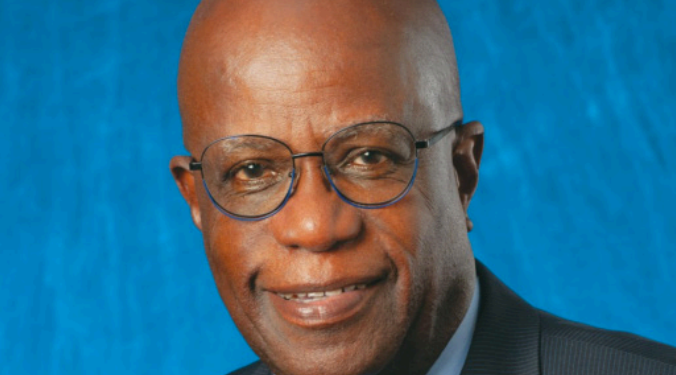The debate surrounding the Eastern Caribbean Central Bank (ECCB) Governor’s residence has raised questions about the justification for constructing official residences for high-ranking public officials. However, such accommodations are not unique to the ECCB or the Eastern Caribbean. Across the region and internationally, institutions provide housing for key officials to fulfil personal and professional responsibilities in a setting designed for official engagements.
A prime example is the Governor of the Central Bank of Barbados, who is provided with an official residence. This residence is not merely a home but a space designated for hosting official functions, allowing the Governor to engage with dignitaries, financial stakeholders, and international partners in a secure and professional environment. Importantly, this official residence is separate from the Central Bank’s headquarters, reinforcing the understanding that institutional leadership requires a setting suitable for private and formal duties.
The Cost of Official Residences: A Local Comparison
The criticism surrounding the ECCB residence project also presents an opportunity to assess how governments allocate resources for the upkeep of official residences. For instance, in St. Vincent and the Grenadines, a recurring annual allocation is made for the Prime Minister’s residence, covering expenses for enhancements, staffing, and maintenance. This continuous expenditure suggests that institutional housing is an ongoing financial commitment, not a one-time investment.
A letter writer in Kingstown drew our attention to the national budget estimates in St. Vincent and the Grenadines, which reveal that substantial funds have been allocated for the Prime Minister’s residence over several years. Salaries for additional staff at the residence have amounted to over EC$1.5 million from 2021 to 2025. Meanwhile, ongoing enhancements and refurbishments have been assigned yearly allocations, bringing the total cost of improvements to an estimated EC$437,747. Beyond the residence, an additional EC$300,000 has been allocated to refurbish the Prime Minister’s office between 2024 and 2025.
These figures highlight an essential reality—institutional residences are an expected part of governance and financial management.
Whether for a prime minister or a central bank governor, these accommodations serve more than just personal needs; they are extensions of official duties, ensuring that key leaders can fulfil their roles effectively in a secure, functional environment.
The ECCB Residence: A One-Time Institutional Investment and Cost Considerations
Since 2016, when Antoine assumed the role of Governor, the ECCB has incurred significant rental costs to provide suitable accommodation. Over time, these recurring expenses add up, making a one-time capital investment in an official residence a more sustainable long-term solution. Instead of continuing to spend on rental payments, the ECCB has opted for a long-term solution that balances financial prudence, security, and institutional functionality.
Unlike the annual maintenance costs associated with government-provided housing for political leaders, the ECCB’s residence project represents a one-time capital investment. Rather than relying on continuous rental expenditure, the Bank has invested in a permanent residence designed to provide institutional security, facilitate official engagements, and reduce long-term operational costs. Given the importance of the ECCB Governor’s role in representing the institution at the highest levels, a designated official residence is not unreasonable.
While questions about cost escalation in the ECCB residence project remain relevant, it is crucial to distinguish between unnecessary spending and essential institutional planning. Suppose we accept that prime ministers and central bank governors require official spaces to carry out their responsibilities effectively. In that case, this debate should shift toward ensuring value for money in construction projects rather than disputing the need for such spaces altogether.
The Justification for Official Residences
Providing central bank governors with an official residence is a strategic decision to ensure their independence, security, and ability to focus on their duties without undue influence or distraction. There are several key reasons why such accommodation is necessary:
- Independence and Impartiality – An official residence can help insulate the governor from potential conflicts of interest or undue influence from political or economic pressures.
- Security—Sometimes, an official residence enhances the governor’s security, primarily where threats or safety concerns exist.
- Focus and Concentration – A secure and comfortable living space allows the governor to focus on the demands of their role without the additional stress of managing a personal residence.
- Symbol of Authority — In many countries, the central bank’s official residence symbolises its stature, reinforcing its credibility and importance.
- Legal Basis – In some jurisdictions, such as Nigeria, the provision of an official residence for the central bank governor is explicitly stated in governing legislation (CBN Act 2007).
A Broader Perspective on Institutional Residences
Across the world, high-ranking officials are provided with residences that serve as both homes and venues for official state functions. From Government House in Canada to Chevening in the United Kingdom, institutional housing is widely acknowledged as a necessary investment in governance infrastructure.
In the Caribbean, where financial institutions play a crucial role in economic stability, ensuring that central bank governors have the appropriate environment to host dignitaries, international financial representatives, and regional stakeholders is just as essential. Suppose the conversation on the ECCB residence is to be productive. In that case, it must move beyond questioning its necessity and instead focus on how best to manage such investments to ensure financial accountability and long-term benefits.
This debate presents an opportunity for the region to reflect on how institutional projects are planned, budgeted, and executed. Rather than dismissing the idea of an official residence outright, the discussion should focus on how best to implement such projects with efficiency, transparency, and fiscal responsibility.
Julian Rogers is following developments from his Caribbean home in Belize. Write to him at mycaribbean@gmail.com.



